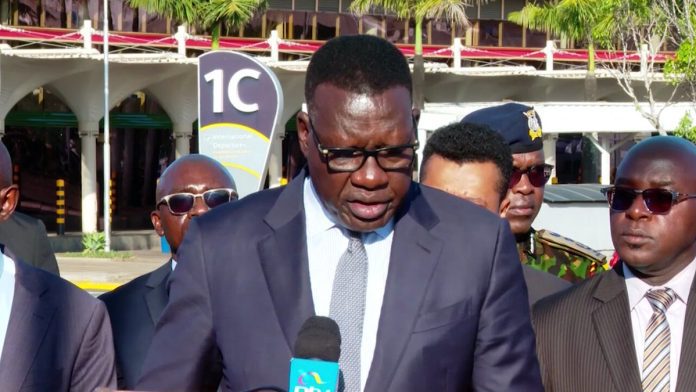Kenyan motorists will soon have to dig deeper into their pockets to keep their vehicles on the roads. This follows a decision by the Ministry of Transport which is headed by Cabinet Secretary Davis Chirchir to reintroduce controversial vehicle insurance and air pollution taxes.
The taxes dubbed as car insurance premium tax and the congestion levy are contained in the National Tolling Policy that was published by Chirchir’s ministry this week. The policy states that the two taxes shall be introduced to shore up revenues for road construction and maintenance.
“To maintain proper road infrastructure financing, the policy proposes an increase in the fuel levy fund, introduction of road tolls, polluter pays principle and insurance premiums tax with the balance obtained from the exchequer,” the document states.
“The sale of petrol and diesel continues to decrease as demand for cheaper, more fuel-efficient cars, and electric vehicles increases. If the government continues to struggle with already strained budgets while the private sector moves away from gasoline-powered vehicles, the condition of the road infrastructure will continue to deteriorate.”
16.1 million Kenyans shun SHIF; contributions not enough to fund healthcare
In the controversial Finance Bill 2024, the government had introduced a vehicle ownership tax dubbed the new motor vehicle circulation tax which was to be collected as part of insurance premiums by insurers.
The calculation for this tax was to be based on the make, model, engine capacity and year of manufacture of the vehicle. An insurer of a vehicle was expected to collect and remit the tax within five working days after issuing an insurance cover.
An insurer who failed to collect and remit the motor vehicle tax would have been liable to pay a penalty equivalent to 50 per cent of the uncollected tax and the actual amount of the uncollected tax.
In the new National Tolling policy, the Ministry of Transport says that the road maintenance levy is inadequate and needs to be supplemented by additional taxes and levies.
“The report concludes that the road maintenance levy fund cannot sustain the maintenance of the expanding road network in the long term and this unsustainability necessitates the need to adopt strategies to seek alternative and long term funding solutions for road maintenance and alternative sources of road financing,” the draft policy states.









